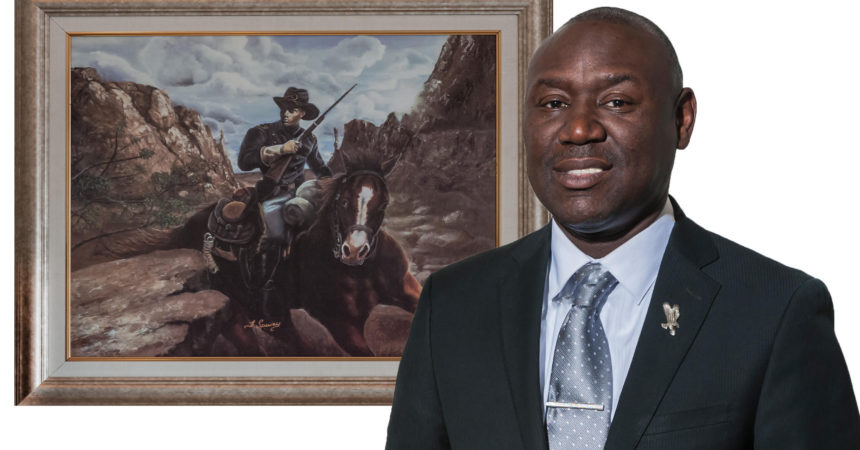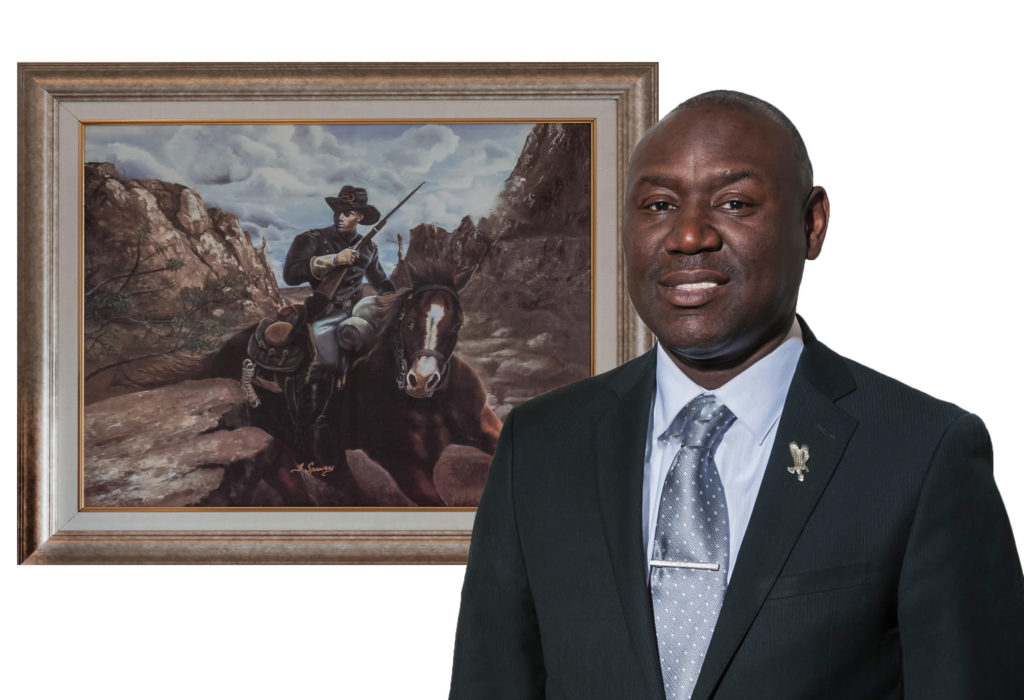
Crump gets award named for first Black colonel

Tallahassee attorney Benjamin Crump was recently awarded the Trailblazer Award named for Col. Charles Young.
Photo special to the Outlook
By St. Clair Murraine
Outlook staff writer
Benjamin Crump’s fights as a civil rights attorney have been equated to similar issues faced by some of his well-known predecessors in the legal field.
Now he’s being compared to Charles Young, the first Black soldier to become a colonel in the Army. Young fought through several injustices in the military, each time defying stereotypes about a Black man’s ability to demonstrate the kind of leadership that he’d shown during the late 1800s.
This past Thursday in Wilberforce, Ohio, Crump, a Tallahassee attorney, was presented with the prestigious Trailblazer Award during ceremonies hosted by the Charles Young Buffalo Soldiers National Monument.
Crump has won countless awards for his work as a civil rights lawyer, but he called this one special because of the man who inspired it.
“It is particularly humbling to be recognized in the name of such a trailblazer,” Crump said. “I have spent my career working to bring justice to African Americans and all people of color, just as Colonel Young spent his life dispelling common myths about what Blacks were capable of.”
The award recognizes individuals who exemplify Young’s commitment to civil rights and are carrying on his legacy of education and service to humanity. Crump is the first recipient of this award.
Despite his rise to colonel, Young was denied becoming the first Black general of the military. Historians have attributed that to White superior officers not wanting to take orders from a Black general. Additionally there were claims that Young was not medically fit to get such a promotion.
However, he debunked those claims when he rode his horse over 100 miles to prove his fitness for duty, something that a group of soldiers did years later to earn the name Buffalo Soldiers.
Young died 26 years before President Harry Truman issued an executive order to end racial segregation in the military. However, countless cases of racism in the military have been documented hundreds of years later.
According to findings by the nonprofit advocacy group Protect Our Defenders, almost 10 years of research has shown racial disparity in the military. The report, which came out last year, found that Blacks are 2.5 times more likely to face military justice or disciplinary action than their White counterparts.
“Military leadership has been aware of significant racial disparity in its justice process for years, and has made no apparent effort to find the cause of the disparity or remedy it,” Protect Our Defenders said in a statement.
Crump praised Young for his defiance, which earned him recognition as a trailblazer for civil rights in the military.
“His leadership was significant because it was unheard of for any unit to be led by a Black commander during an in-the-field campaign,” said Crump. “Colonel Young’s ability to rise to this position of leadership is extraordinary, especially during a time when stereotypes of Black men being intellectually inferior prevailed.”







